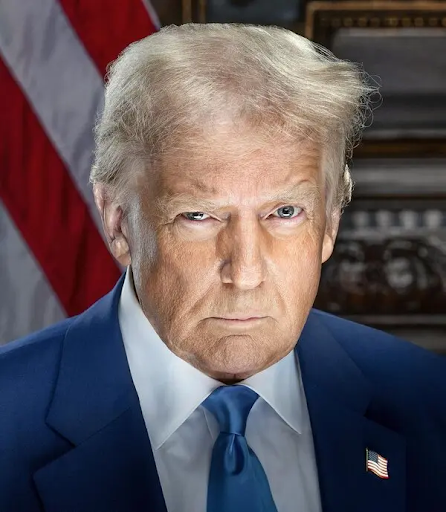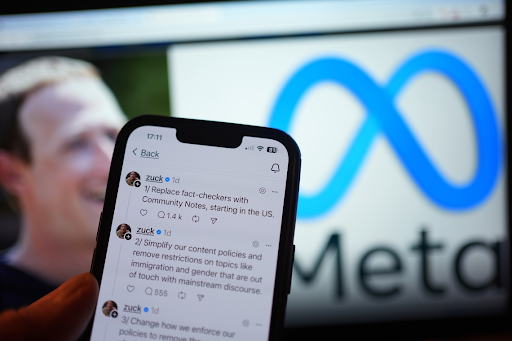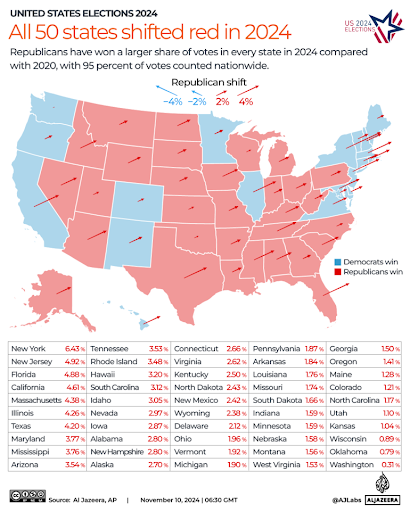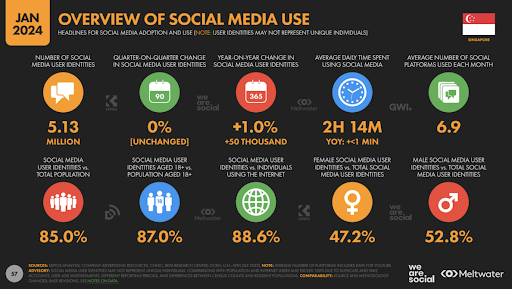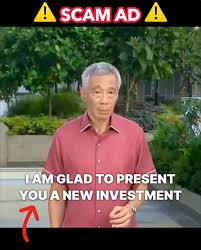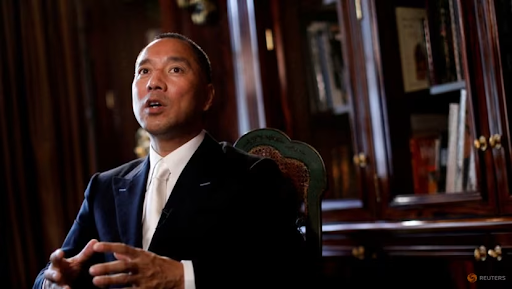This article is written by our intern Hsin-Hsiang, who will be pursuing a Bachelor of Music degree in the United Kingdom.
Donald Trump’s victory in the 2024 U.S. election defied expectations. His campaign, driven by bold rhetoric and unconventional tactics, often blurred the line between politics and spectacle. Media coverage of his rallies and statements turned political discourse into viral entertainment, drawing both criticism and admiration. While some dismissed his approach as theatrics, his ability to dominate attention proved to be a powerful asset in an era where social media shapes public perception.
- Official inaugural portrait of Donald Trump (Torok, D.,2025)
More than just a return to office, Trump’s win underscored the growing influence of social media in modern politics. Platforms like TikTok, X (formerly Twitter), and Instagram played a key role in mobilizing voters, especially younger demographics. Online discussions, memes, and rapid news cycles fueled real-time political engagement, often shaping narratives before traditional media could catch up. As digital influence eclipses conventional campaigning, navigating politics in the social media age has become more complex—and more consequential—than ever.
Introduction: The Power of Social Media in Politics
Social media has drastically changed the political landscape, shaping public opinion, amplifying narratives, and even influencing election outcomes. What was once a space primarily for personal interactions and entertainment has become a driving force in political discourse, largely due to the unprecedented speed at which information spreads. Social media platforms enable the rapid circulation of political messaging, whether through news articles, opinion pieces, or viral posts, making it easier than ever for individuals to engage with and react to political content.
However, this transformation is not without risks. The same methods that allow for the rapid spread of legitimate information also facilitate the dissemination of misinformation and biased perspectives. False narratives can gain traction quickly, misleading the public, which in turn snowballs into affecting political decisions on a larger scale. The rise of deepfake technology, AI-generated content, and coordinated disinformation campaigns further complicates the landscape, making it increasingly difficult to distinguish fact from fiction.
In this evolving digital environment, social media’s role in politics continues to grow, demanding greater awareness and critical thinking from users, policymakers, and tech companies alike.
How Social Media Controls Narratives
The Role of Algorithms in Shaping Political Discourse
Social media platforms are designed to maximize user engagement. Algorithms' data-driven content wisely curates personalized feeds that typically reinforce users' prevailing beliefs. Unfortunately, algorithms are double-edged swords: while users are more engaged on platforms with content they enjoy, it also creates an 'echo chamber' effect.Therefore, particular echo chambers are created in which opposing viewpoints are relatively unlikely to be encountered. This leads to greater political division, with many people typically leaning toward information that closely corresponds with their own standpoints while conflicting against opposing perspectives frequently.
Click here to find out more on echo chamber and its effects from Yu Xin, our ex-intern!
The Decline of Traditional Fact-Checking: Meta’s U-Turn
In the past, platforms like Facebook (now Meta) implemented independent fact-checking mechanisms to combat misinformation. However, in a significant shift, Meta announced on 7th January 2025 that it would no longer actively fact-check political content, opting instead for a crowdsourced approach similar to X’s (formerly Twitter’s) Community Notes feature. In a video message, Zuckerberg cited that third-party moderators were “too politically biased” and it was “time to get back to our roots around free expression” (McMahon, 2025).
- Mark Zuckerberg announcing changes on fact-checking on Meta (Mok, Y.,2025)
This approach grants users greater autonomy to shape their online communities, but it raises concerns about the reliability of such systems. When users with inherent biases are tasked with determining the objectivity of information, the risk of misinformation increases.Additionally, there is the potential for bad actors to exploit Community Notes, manipulating them to serve political agendas.
This change reflects a broader trend in which social media companies move away from direct moderation, placing the responsibility on users instead. While some see this as a step toward fostering free speech, others worry it could undermine efforts to address political misinformation, particularly during critical election periods. The balance between empowering users and maintaining accountability remains a contentious issue.
Social Media’s Influence on Elections:
Let’s bring the focus back to the 2024 US elections. President Trump’s campaign (albeit comical) effectively bypassed traditional media gatekeepers, leveraging platforms such as Truth Social and X to communicate directly with voters. Harnessing this power, Trump’s campaign could effectively address key voter concerns such as border security and the economy, without relying on mainstream media coverage. This allowed for a more impactful messaging and branding for himself, which was the key in his victory. In this election, all 50 states saw an increase in votes for Donald Trump, a feat that is no easy task to accomplish.
- United States Elections 2024 (Al Jazeera, 2024)
The election, as a whole, saw an unprecedented reliance on digital media, with memes, viral content, and influencer endorsements playing a pivotal role in shaping public opinion and rallying support for various campaigns. Social media platforms became key battlegrounds where political narratives were crafted, amplified, and contested in real time.
However, the rapid spread of digital content proved to be a double-edged sword. While viral moments could boost a candidate’s visibility and engagement, they also had the potential to undermine campaigns just as quickly. The proliferation of unverified claims and misleading narratives further complicated the political landscape, making it increasingly difficult for fact-checkers to combat misinformation and provide voters with accurate information.
Increased Political Engagement Among Youths
Social media has not only changed how political narratives are shaped but also how young people engage in politics, emerging as a largely influential tool for activism and mobilization among youths. Since the content can be easily accessed by the youth who are the predominant users, platforms like TikTok and Instagram have given rise to digital activism, enabling youth-led movements and online political discussions. Internet campaigns, virtual requests, as well as trending topics have shown their power in furthering civic involvement, swaying community arguments, along with even molding governmental talks.
Examples of Digital Political Engagement:
Brilyn Hollyhand is a 18 year-old-chair of the Republican National Committee’s Youth Advisory Council. As a young republican, he was instrumental in reshaping youth voter outreach strategies, championing the usage of social media platforms to engage younger audiences. Initiatives he started include monthly podcasts and proposing the White House Influencer Programme, where influencers would have the chance to participate in press briefings and ask questions directly to the President. These initiatives provide avenues for the youth to share their voices and be more participative in politics. His innovative approach in modernising campaign publicity has been credited with boosting youth voter support for Trump in the 2024 election, emphasising the importance of youth participation in politics.
- Brilyn Hollyhand (Hollyhand, B., 2025)
While all of this is happening halfway across the globe, the influence of social media on politics is not limited to the United States alone. In fact, the same digital forces are reshaping political engagement and public discourse right here at home. Let’s turn our attention to Singapore and examine how these global trends are unfolding on our own soil — and what this new age of politics means for us.
From the US to Singapore: Foreign Interference and Political Risks
Singapore’s highly connected population, especially in the younger demographic, makes it particularly susceptible to foreign influence via social media. External actors can manipulate public sentiment through misinformation or coordinated online campaigns, potentially affecting national security and political stability. Data shows that Singapore has one of the highest mobile internet use with a penetration rate of around 95% (Romero, 2024).
- Overview of Social Media Use (We are Social, 2024)
What’s going on in Singapore?
There are 2 contrasting aspects of utilising social media in the world of politics: Internal sharing of party messages, mottos, and belief between the political parties of a country and its citizens, versus the External interventions by foreign bodies in order to build mistrust within the government and its people.
Singapore has seen a recent rise in attempts of provoking fear and mass movements online. In 2024, there were videos shared in community chats and social media platforms of various prominent high level ministers, including senior minister Lee Hsien Loong. In such videos, they were seen to be sharing about a new investment opportunity, inviting Singaporeans to join them in earning money that has been deemed safe by the government. It was then revealed that the videos had been AI generated, and it was in fact a “Deepfake” video. The scammers utilised technology to mimic his voice, weaving in artificially generated audio with his past speeches, and even matched the mouth movements with the audio.
- Former Prime Minister Lee Hsien Loong warns Singaporeans not to be deceived by “Deepfake” videos (Lee, H. L., 2024)
This is just one of hundreds of other ways foreign actors can utilise technology and social media to attempt to interfere with the political climate of other countries. The attempt to spark mistrust in our government officials and create fear in its citizens show how important digital literacy is for Singaporeans, in particular the youth who are the most prominent users of social media.
The Foreign Interference (Countermeasures) Act (FICA):
To counter such threats, Singapore introduced the Foreign Interference (Countermeasures) Act (FICA), which aims to prevent foreign entities from influencing local politics, regulate foreign funding and misinformation campaigns, and protect the integrity of Singapore’s political landscape. FICA “empowers the Minister for Home Affairs to issue FICA directions to various entities… to help the authorities investigate and counter hostile communications activity that is of foreign origin.” (Introduction to FICA, 2021)
Since FICA was passed in Parliament in October 2021, its account restriction directions have been utilised once so far:
In July 2024, the Ministry of Home Affairs announced that 95 social media accounts across 5 social media platforms will be blocked from being accessible to Singapore users. The accounts were found to have shared content alleging that Singapore is “in the pocket of a foreign actor", who was "behind the scenes in the selection of Singapore’s fourth-generation leader”. 92 of the 95 accounts also posted content regarding Singapore’s leadership transition in 2024 during the crucial period of the transition of April to May 2024. The network of accounts were linked to controversial Chinese businessman Guo Wengui.
- Guo Wengui speaks during an interview (McDermid, Brendan, 2017)
Guo’s attempt on influencing public sentiment on local policies through social media was thankfully thwarted by the swift action of the Ministry of Home Affairs, aided with the powers of FICA, thus mitigating the spread of foreign interference. This case highlights the importance of vigilance in a digital age where external actors can exploit online platforms to influence domestic affairs.
The Importance of Staying Vigilant in the Digital Age
As political discourse increasingly shifts online, users must adopt a proactive approach in consuming information. Recognizing misinformation and critically analyzing online narratives are essential skills in today’s media landscape.
How to Recognize Misinformation:
Firstly, it is important to practice the habit of cross-checking information we receive. Verify information from multiple credible sources before accepting it as fact, and ensure that the information is up-to-date and relevant as well. Choose to receive information from credible sources.
Secondly, acknowledge how preexisting beliefs may influence one’s interpretation of information. Each individual would naturally have their own biasness or beliefs, yet it should not interfere with objectively viewing information as they are received.
Lastly, do not be easily influenced or carried away by persuasive words. Do not be fooled by “click-baits”, or headlines that are sensational and emotionally charged and lack substantiated proof. Look out for statistics and reports rather than opinions or reviews. Instead, receive information with a clear and calm mind.
Encouraging Critical Thinking Among Youths:
In the age where youths are navigating through a sea of information online, it is ever so important to educate them on how algorithms shape political beliefs. Without this knowledge, youths may subject themselves to manipulation unknowingly, which may create divisions among communities.
Discussions should be grounded in facts instead of emotions and opinions, which helps to dismantle false narratives and reduce sensationalism. More can be done to promote the importance of this through awareness campaigns, to emphasise the value of truth over hearsay.
Lastly, encourage youths to seek out alternative perspectives to issues that they are passionate about, instead of only being surrounded by common viewpoints. Create spaces where diverse opinions are welcomed and respected, such that meaningful debates can be conducted. Exposure to diverse perspectives promotes understanding and builds empathy for others, which are important values of a cohesive society.
Conclusion: Navigating Politics in the Age of Social Media
Social media is an undeniably powerful tool for political engagement, offering direct communication channels and amplifying voices that might otherwise go unheard. However, it also serves as a breeding ground for misinformation, political manipulation, and echo chambers. As we move further into the digital age, the responsibility to critically assess information and engage in informed discussions rests with both platforms and users.
The challenge remains: How can we ensure that social media continues to be a tool for democracy rather than a mechanism for manipulation?
References
- Al Jazeera (2024). United States Elections 2024. [Image]. Retrieved on June 05, 2025, from https://www.aljazeera.com/news/2024/11/10/us-election-results-map-2024-how-does-it-compare-to-2020
- Amnesty International. (2023, October 31). Myanmar: Facebook’s systems promoted violence against Rohingya; Meta owes reparations – new report. https://www.amnesty.org/en/latest/news/2022/09/myanmar-facebooks-systems-promoted-violence-against-rohingya-meta-owes-reparations-new-report/
- Hollyhand, B. (2025). Brilyn Hollyhand. [Photograph]. Retrieved on April 02, 2025, from https://www.linkedin.com/in/brilynhollyhand/
- Introduction to FICA. (n.d.). Ministry of Home Affairs. https://www.mha.gov.sg/fica
- Koh, F. (2024, July 20). Singapore to block nearly 100 social media accounts linked to Chinese tycoon Guo Wengui. CNA. https://www.channelnewsasia.com/singapore/guo-wengui-fica-foreign-interference-directions-mha-4488241
- Lee, H. L. (2024). Former Prime Minister Lee Hsien Loong warns Singaporeans not to be deceived by “Deepfake” videos. [Image]. Retrieved on March 17, 2025, from https://www.instagram.com/leehsienloong/p/C7sxLbFyS6h/
- McDermid, Brendan (2017). Guo Wengui speaks during an interview. [Photograph]. Retrieved on April 02, 2025, from https://www.channelnewsasia.com/singapore/guo-wengui-steve-bannon-fica-ccp-us-right-wing-4488306
- McMahon, L., Kleinman, Z., & Subramanian, C. (2025, January 7). Meta to replace “biased” fact-checkers with moderation by users. https://www.bbc.com/news/articles/cly74mpy8klo
- Mok, Y. (2025). Mark Zuckerberg announcing changes on fact-checking on Meta. [Image]. Retrieved on March 26, 2025, from https://www.euractiv.com/section/tech/news/metas-drop-of-fact-checking-hard-to-brand-as-illegal/
- Rouhandeh, A. J. (2025, January 7). EXCLUSIVE: GOP Youth Chair offers Donald Trump three ideas to engage Gen Z. Newsweek. https://www.newsweek.com/exclusive-gop-youth-chair-offers-donald-trump-three-ideas-engage-gen-z-2010214
- Topic: Internet usage in Singapore. (2024, February 6). Statista. https://www.statista.com/topics/5852/internet-usage-in-singapore/#topicOverview
- Torok, D. (2025). Official inaugural portrait of Donald Trump. [Photograph]. Retrieved March 27, 2025, from https://commons.wikimedia.org/wiki/File:Donald_Trump_official_portrait,_2025_%28cropped_headshot%29.jpg
- We Are Social. (2024). Overview of Social Media Use [Image]. Retrieved on March 17, 2025, from https://wearesocial.com/sg/blog/2024/02/digital-2024-top-digital-and-social-media-trends-in-singapore/


